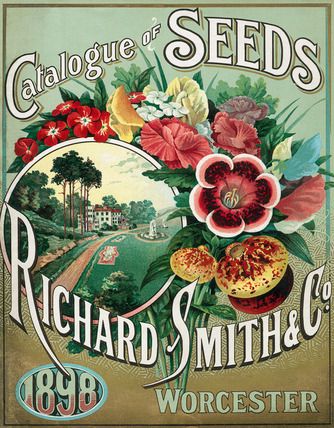The genius behind the lawn at Chatsworth was Capability Brown (1716-1783). In the course of…
Nineteenth Century Garden Catalogs Taught America How to Garden
During most of the nineteenth century the supply of books and journals were limited to the wealthy, upper class in this country.
Seed and nursery catalogs, however, were sent to everyone who wanted one. Thus the catalog became a coveted piece of literature for the middle class and the laborer as well.
The garden catalog offered its readers not only seeds and plants, but also lessons in horticulture.
In 1885 W. D. Brackenridge wrote an article entitled “Horticultural in the United States during the Last Fifty Years” which appeared in Philadelphia nurseryman Thomas Meehan’s garden magazine The Gardener’s Monthly.
He said, “The country has arrived at a high state of progress in horticulture, much of which is due to the writings of the Downings, Wilder, Barry, Meehan and many other noted men, combined with the work of the American Pomological Society; not forgetting the aid afforded by descriptive and illustrated catalogues spread broadcast over the length and breadth of the land by the almost innumerable nurserymen and florists in every section of our diversified and fertile country.”
Here is the cover of the Richard Smith catalog of 1898. [below]
Smith not only sold seeds and plants but also taught his customer how and where to plant them.
Notice the landscape design which appeared much like the English garden and became part of that instruction by its mere presence on the cover. The lawn, fountain, and the flowerbeds reflect the English garden of the late nineteenth century.

They knew how to illustrate covers so beautifully back then didn’t they? And you’re so right: the seed catalog was the main disseminator of horticultural ideas (besides neighbors) until well into the 20th century. Fascinating… Thanks for sharing this catalog! -Beth
Beth, I am happy that you enjoyed that cover image of the 1898 Smith seed catalog. I was so fortunate to find it. Have a great day.